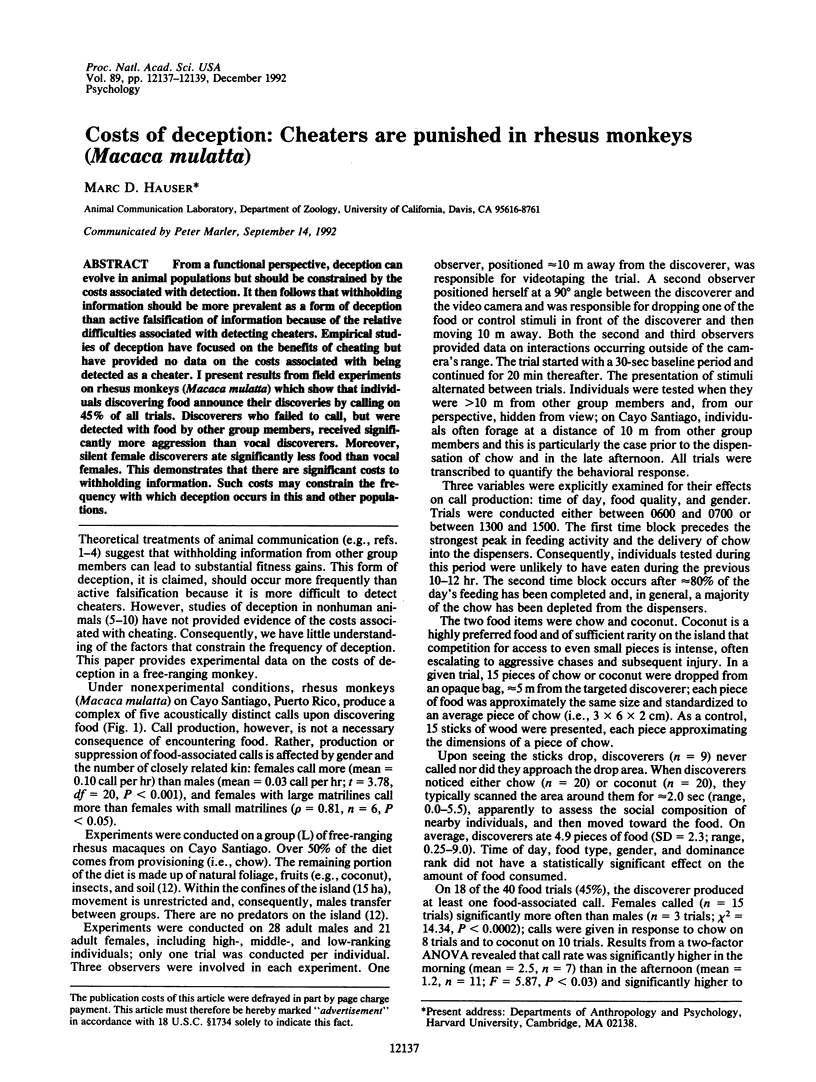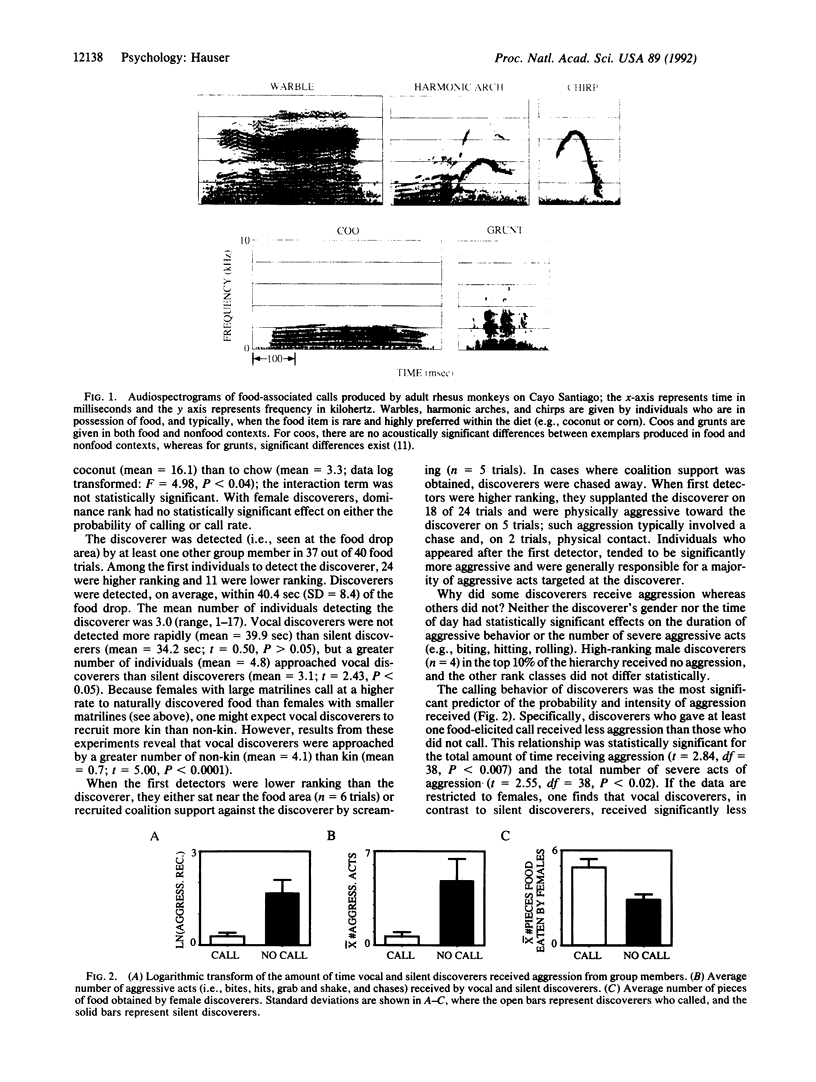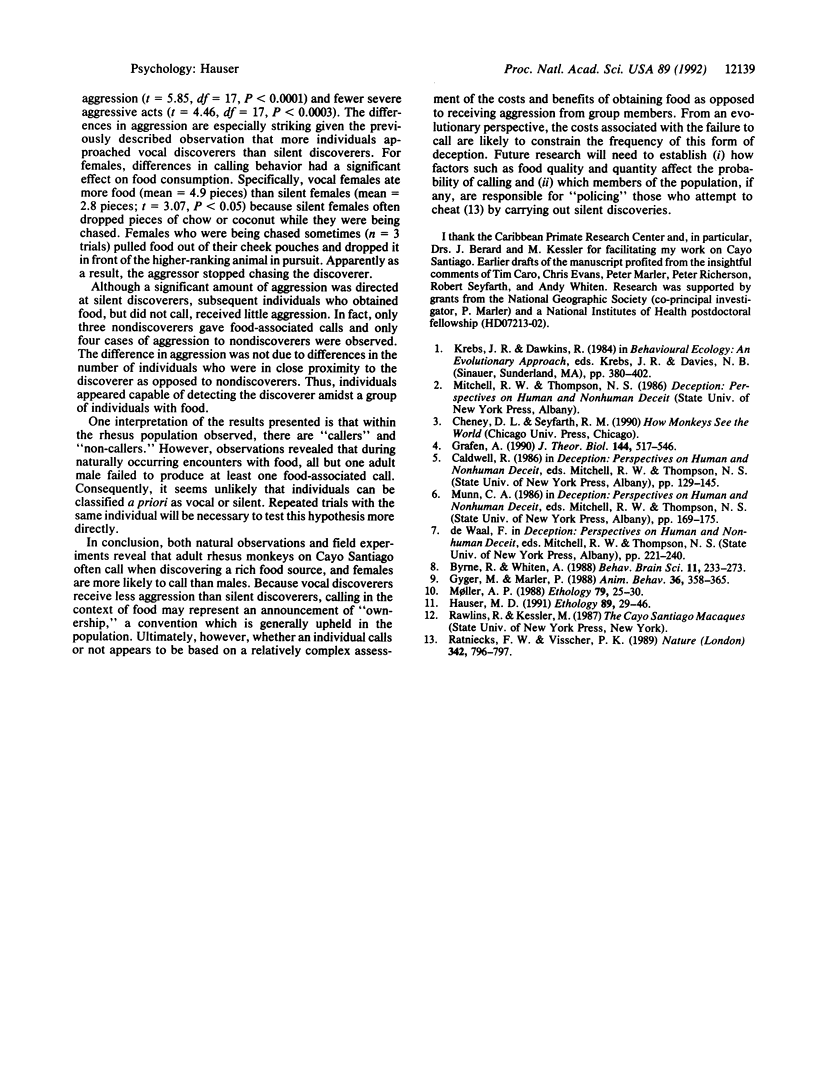Abstract
From a functional perspective, deception can evolve in animal populations but should be constrained by the costs associated with detection. It then follows that withholding information should be more prevalent as a form of deception than active falsification of information because of the relative difficulties associated with detecting cheaters. Empirical studies of deception have focused on the benefits of cheating but have provided no data on the costs associated with being detected as a cheater. I present results from field experiments on rhesus monkeys (Macaca mulatta) which show that individuals discovering food announce their discoveries by calling on 45% of all trials. Discoverers who failed to call, but were detected with food by other group members, received significantly more aggression than vocal discoverers. Moreover, silent female discoverers ate significantly less food than vocal females. This demonstrates that there are significant costs to withholding information. Such costs may constrain the frequency with which deception occurs in this and other populations.
Full text
PDF


Images in this article
Selected References
These references are in PubMed. This may not be the complete list of references from this article.
- Grafen A. Biological signals as handicaps. J Theor Biol. 1990 Jun 21;144(4):517–546. doi: 10.1016/s0022-5193(05)80088-8. [DOI] [PubMed] [Google Scholar]




